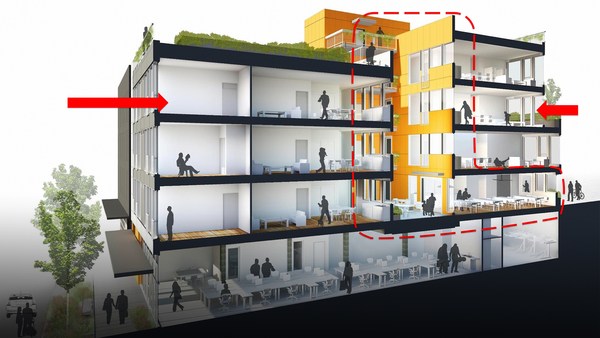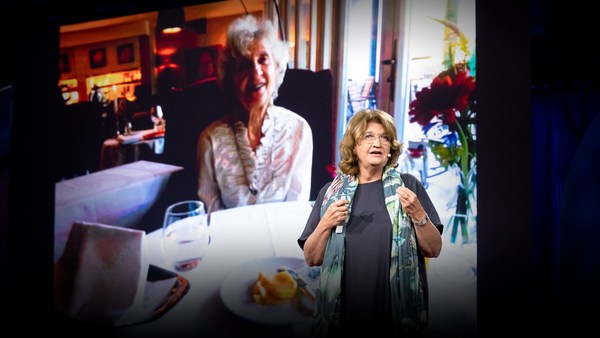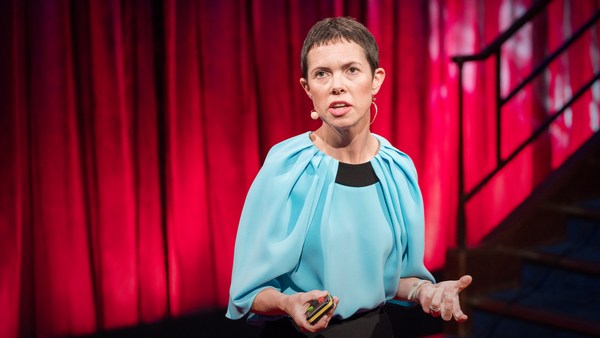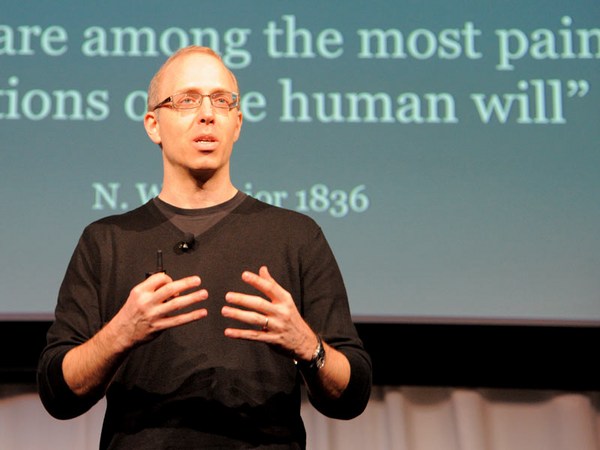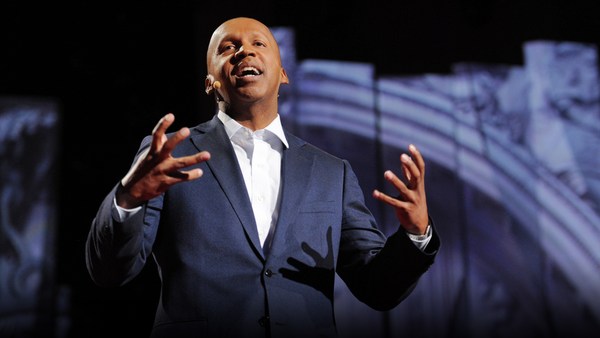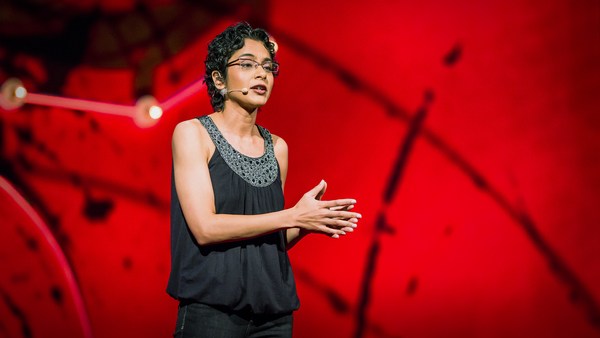When we're seven, getting older and turning eight sounds great. Then once we're in our teens, the very idea of getting older and being 16 is amazing. But show me one single person who wakes up on their 50th birthday and says, "Wow, I can't wait till I'm 70."
"Getting old is not for sissies." That's what my 90-year-old mother-in-law says when she's cross because something, physically or mentally, just isn't working the way it should, and did, years ago. But there are other surprises ahead of us. There is something else that goes along with aging, and it's not something we ever think about.
One in 10 adults over 60 will be abused during their lifetime. That is five million people every year. Even worse, half of those who develop dementia will experience some kind of abuse. And more often than not, the abuser will be a family member. We never think that this is going to happen to us or to our loved ones. But it's happening, right now, to our parents, our grandparents and our neighbors.
I first learned elder abuse was a thing when my dad fell victim to a classic elder scam. He was retired and he was living alone, and although he was hiding it really well, he was starting to struggle with tasks that had once been simple for him. The medical term would probably be "mild cognitive impairment." Then, one day, I found a detective's business card sitting on his kitchen table. He'd been ripped off by a phony roofing contractor. He'd given this guy a lot of money up front, and the guy took his money and then took off. Despite my dad's police report, no one was ever charged or prosecuted. I was a criminal defense attorney at the time, but even still, I was shocked that it had happened. And as his daughter, I was horrified that I hadn't seen it coming.
Years later, I moved to Colorado, and I started working as a deputy district attorney, prosecuting crimes against older adults and folks with disabilities. I soon learned that there were a ton of these crimes out there, but not so many of them were getting reported. The statistics said maybe one in 14. And when those crimes did get reported, as I'd already seen, very few of them got charged or prosecuted, and only the tiniest proportion resulted in a conviction.
So let's just think about domestic violence and child abuse, for a second. Think about all the resources of public-service campaigns poured into those issues -- and yet, still, those crimes remain way too high. Efforts to address elder abuse are said to be 20 years behind both of those issues. But we need to get better, and we need to get better fast, because this problem is exploding.
Elder abuse is growing, but it still remains hidden because of shame, because of embarrassment, because of affection between perpetrator and victim. And most of all, because everyone has a deep, instinctive fear of admitting to impairment.
So we see lots of different types of elder crime. We see physical abuse, we see emotional abuse. Sometimes, we'll see neglect or sexual abuse. But every single day, we see fraud and exploitation.
Financial crimes against seniors in the US cost an astonishing amount. The estimates put it up to 36.5 billion dollars every year. We know that seniors get bombarded by phone scams and internet scams even more than the rest of us. And this is lazy-boy crime. Why would anyone go out and rob a bank? They can sit at home, they call seniors and they terrify them that they're about to get arrested or that their grandsons are in jail. Then, they pressure them to buy multiple gift cards and Bitcoin. So many seniors have saved for decades, and those nest eggs, or sometimes, their whole life savings, just get wiped out in hours, or sometimes days.
It's low-risk crime, and it's very lucrative. But what's the reason that seniors are falling for these scams so often? And why do criminals target them? One possible answer lies in what happens to our brain as we age. By the time we're 60, neuroscience says that every single one of us is going to have some kind of cognitive change or deficit. Of course, our brains compensate, and no two individuals are the same. But as our executive functioning for complex tasks starts to decline, we might find it more difficult to figure out if someone is trying to manipulate or exploit us. And at the same time, we'll very likely have less insight into the fact that these deficits exist. And this combination creates perfect victims.
It also goes to explain another type of crime that we see seniors falling for, again and again, and this is financial exploitation. In this type of crime, a third party homes in on the senior. They start to use persuasion and influence, and really almost grooming, to get them to give them money or assets. This can be a new person in the senior's life, and sometimes, it'll seem like someone who's really great. It'll be the new best friend or the fabulous new caregiver. Maybe a romantic interest, or even a financial or legal professional. And what we see is that the bond that the perpetrator creates with the senior is so strong that even if they're cleaned out and penniless, they're often incurring credit card debt, and even taking out reverse mortgages so they can give more to the person scamming them.
But right now, on some level, we're still thinking that this is not something that's going to happen to us. We couldn't get scammed, not us, not our smart friends and family. Are we so sure about that?
Howard and Charlotte were 89 and 83 when they came forward. They'd both had careers as successful psychotherapists, and they had six college degrees between them. Years before, a receptionist from their eye doctor’s office had showed up unexpectedly at their home and asked if she could borrow 300 dollars. She came back again and again, and often, she brought her small child with her. And every time she showed up, she had something new to tell them about why she needed money urgently: eviction costs, a lawsuit, medical bills or surgery. She rarely left without a check in hand. And after this had gone on for some time, she had got almost 600,000 dollars from this couple. And all the time, they told no one. It wasn't until their accountant asked them questions that they couldn't avoid, and then told them this was a crime, and that they had to call it in. Even then, they waited another couple of weeks, until, mortified, they finally took his advice.
This case is also a great example of how delays inherent in the criminal justice system make achieving justice for seniors a really difficult task. Howard was already dying of heart failure at the time that this case was charged. His cardiologist said that he only had a few months to live. So trial might be a year or more out. And Howard was an essential witness, but he wasn't going to be around. We litigated, to take his testimony ahead of time, by a deposition. That's something that's really fairly rare in criminal cases. Finally, Howard testified from his home. And he spent the entire next day in bed, exhausted. He passed away only six weeks later.
And we were so lucky. If Howard had cognitive issues, important details might already have been lost. And this is what happens in these cases. The clock's running against us, and that clock runs out, and cases get dismissed. The victims and their voices simply fade away.
Let's talk about another problem that we face, which is based on fundamental legal principle. It's the confrontation clause of the Constitution. This means that when someone is accused of a crime, they have the right to bring in their accuser, confront them face-to-face in court, and cross-examine them. The person who's accused of abuse can insist on bringing in the senior to have their lawyer question them. As you can imagine, this is very tough in cases with older victims. I think of one case I prosecuted, where the elderly woman sat in her wheelchair outside the courtroom for hours, waiting to testify. Other cases overran. Eventually, cold and tired and in pain, she just started crying. We really need to figure out better solutions. Sometimes, we can carve out small exceptions to the confrontation clause, based on public policy and the necessities of the case. Sometimes, remote testimony can be a substitute for in-person presence, particularly if we build in due process safeguards, like having a person from each side present, to make sure there isn't any prompting or interference. During the pandemic, judges have sometimes permitted remote testimony based on the public health crisis and the elevated risks that that presents to seniors.
There's one other thing that's really worth mentioning, which is that in other legal systems, where confrontation isn't quite so fundamental, they're really headed in an entirely different direction. Special measures to protect vulnerable victims are becoming more common, and what's driving these changes is the focus on really getting the best and most reliable testimony from the witness, which kind of makes sense. Also, in California, initiatives around specialty courts have been set up to address some of these specific barriers to elder justice that we're talking about.
So we can make this system better. We can also take action ourselves to prevent those we love being affected by predatory behavior. It is time that we had the talk. No, it's not that talk. This is the talk that we need to have with our parents or other elder adults that we talk to. And it is every bit as awkward, because it goes against the grain of the relationship. Roles have changed forever, and the person who used to be our protector might now need some protection themselves. So before we even start this process, we can reach out to family friends, because they often have a great idea of what's going on. They may be able to tell us if they've seen signs and symptoms that concern them. Physicians or other professionals can help too.
Then let's talk about tone, because this is not an easy conversation, and it really needs a careful approach. What we can't do is go in there ready to judge, because who wants to be judged, who wants to be made to feel less than? In my cases, I try to get a photograph of the senior when they were a different age, in a different context. It helps me see more of that person. We didn't know our parents when they were our age. There is a lifetime of history between us, but there are still new ways to connect.
And there are so many practical and unobtrusive fixes that we can put in place. Maybe it's doorbell cameras or text alerts from the bank that come to our phone, or maybe we're just going to help out with that huge mountain of paperwork that keeps regrowing. There is a whole industry out there, and we need to find the solutions together. Also, this is a process, so we need to keep it under review. And if right now, we're feeling overwhelmed, then nobody said it would be easy, and neither is getting old. But we can't wait, because if we wait, we'll find out after something has happened. Like my family did, or like Howard and Charlotte's family did.
When I first meet with victims of elder crime, it can feel really heavy. They've taken a big blow to their dignity and their self-respect. They tell me that they feel tired and foolish, and sometimes, they even say that they feel like they're done. We try not to make this process any harder for them. As in, "Wow, you've really been through a lot ... But wait, there's more." And we get to share in their amazing resiliency and their humor, as we navigate our way through this messy system together. We can improve how the system responds to their mistreatment. We can ramp up prevention, we can raise awareness, and we can do a better job protecting our own friends and family.
And who knows what lies ahead for our future selves, either? But now that we absolutely know that elder abuse can happen to anyone, it's time that we change that, to make sure that it can't, and it doesn't.
